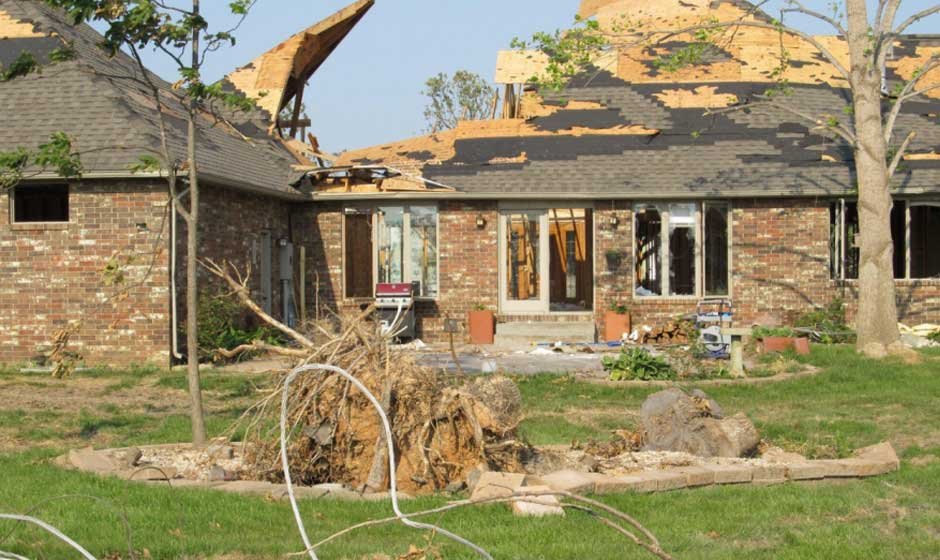What would you do if disaster struck your home tomorrow? A fire, storm, or break-in could cost you thousands, leaving you scrambling to rebuild.
Home insurance acts as a financial shield, protecting your biggest investment from unexpected losses. It’s not just about paying for damages-it’s about peace of mind. With the right policy, you won’t have to start over from scratch.
This article will help you understand why home insurance is a must-have for every homeowner.
Coverage Details and Customization Options
Home insurance policies come with standard coverage, but there are also options to customize based on your specific needs. Here’s a breakdown of the common coverage types and customization options available:
Dwelling Coverage
Dwelling coverage protects the structure of your home from damage caused by fire, storms, or vandalism. It ensures that you can repair or rebuild your home if it is damaged. This type of coverage is vital for homeowners to avoid the financial burden of repairs.
You should set your dwelling coverage limit based on the cost to rebuild, not just the market value. Ensure that your policy covers the full cost of construction.
Personal Property Coverage
Personal property coverage protects the belongings inside your home, such as furniture, clothing, and electronics. It covers loss or damage from events like theft, fire, or vandalism. This type of coverage can help replace the value of your possessions after a covered event.
You may need to increase this coverage if you own expensive items like jewelry or artwork. You can also choose replacement cost coverage to get a higher payout.
Liability Protection
Liability protection covers you if someone is injured on your property or if you cause damage to someone else’s property. It helps cover legal fees, medical costs, and damages from a lawsuit. This coverage is important for homeowners in case of accidents or injuries.
You may want to increase your liability limits if you feel the standard coverage is insufficient. Higher limits provide more protection in case of larger claims.
Additional Living Expenses
Additional living expenses (ALE) coverage helps pay for temporary living costs if your home becomes uninhabitable. It covers things like hotel stays and meals when you cannot live in your home due to a covered event. ALE coverage ensures that you have somewhere to stay while repairs are made.
This coverage typically has a limit, but you can increase it if necessary. It is important to know the duration for which this coverage applies.
Flood and Earthquake Coverage
Flood and earthquake damage is generally not covered by standard home insurance policies. To protect against these risks, you will need to purchase separate coverage or endorsements. Flood insurance and earthquake coverage help you recover from disasters that are not included in basic policies.
In flood-prone or earthquake-prone areas, this coverage is especially important. These types of damages can be very expensive to repair.
Home Business Coverage
Home business coverage protects your business equipment and liability if you run a business from your home. A standard homeowner’s policy may not cover business-related damages or legal costs. This coverage ensures that your business assets and operations are protected.
Home business coverage can be added as an endorsement or purchased separately. It is important to evaluate the risks your business might face.
Identity Theft Protection
Identity theft protection helps cover the costs associated with recovering from identity theft. It can cover legal fees, lost wages, and other expenses related to restoring your identity. This type of coverage is becoming more common as identity theft becomes a bigger concern.
Adding this coverage to your policy can help you recover more quickly. It may also help you avoid the financial stress that comes with identity theft.
Inflation Guard
Inflation guard automatically adjusts your dwelling coverage to reflect rising construction costs. This helps ensure that your coverage keeps up with the cost of rebuilding in the event of a claim. Inflation guard helps protect you from being underinsured due to inflation.
This feature is usually included in most policies but may require an additional fee. It is a useful way to keep your coverage current.
Mortgage Requirements and Legal Considerations
When purchasing a home, mortgage requirements and legal considerations are crucial factors that affect your ability to buy and protect your property. Here’s an overview:
Mortgage Requirements
Lenders assess several factors to determine if you qualify for a mortgage. These factors include your credit score, income, and employment history. Lenders will also examine your debt-to-income ratio to ensure you can afford the mortgage payments.
A down payment is also necessary when securing a mortgage. The amount you pay upfront can range from 3% to 20% of the home’s purchase price. Your down payment size can influence the terms and interest rate of the loan.
Legal Considerations
Before closing on a home, it’s important to conduct a title search. This search ensures the property is free from legal disputes or claims. A clean title guarantees that you are the rightful owner once the purchase is complete.
You should also consider hiring a professional to inspect the property. The inspection can reveal hidden problems that may affect the home’s value. Legal documents and local zoning laws should be reviewed to understand the permitted uses of the property.
How to Choose the Right Home Insurance Policy
Choosing the right home insurance policy is crucial for protecting your home and belongings. Here’s a simple guide to help you make the best choice:
Understand Your Coverage Needs
Dwelling coverage is the most important part of your policy. It should cover the cost of rebuilding your home if it is damaged. Be sure that your policy provides enough coverage to fully replace your home at current building costs.
Personal property coverage protects your belongings, such as furniture, electronics, and clothing. You should ensure this part of your policy covers the value of your items. Review the coverage limits and adjust them as needed to protect your possessions.
Compare Policies and Providers
It is essential to shop around for the best coverage. Get quotes from different insurance companies and compare them. Don’t just choose the lowest price; consider the quality of the coverage too.
Take your time reviewing different policies. It helps to know what each policy offers and how it matches your needs.
Evaluate Your Deductible
Your deductible is the amount you will pay out of pocket before your insurance kicks in. A higher deductible means lower premiums, but it also means higher costs when you make a claim. Think about how much you can afford to pay out of pocket in the event of a loss.
Choose a deductible that fits your budget and your risk tolerance. Make sure it won’t strain your finances if you need to file a claim.
Check for Discounts
Many insurance companies offer discounts to help lower premiums. You might be able to save money if you bundle your home and auto insurance or have a home security system.
Don’t forget to ask about all the discounts available to you. These can significantly reduce your overall cost.
Review the Exclusions
Home insurance policies often have exclusions, which means certain events or damages are not covered. Common exclusions include flooding, earthquakes, and wear and tear.
If you live in an area prone to specific risks, consider adding extra coverage for those events. If you’re unsure about the exclusions in your policy, contact public insurance adjusters for advice and assistance in understanding your coverage.
Read the Fine Print
The fine print of a home insurance policy contains important details about coverage and exclusions. It can also include conditions that may affect your claim process.
Make sure to read and understand all the terms. This will help you avoid any surprises when you need to file a claim.
Assess the Financial Stability of the Insurer
It is important to choose an insurance company that has the financial strength to pay out claims. You can check ratings from agencies like A.M. Best or Standard & Poor’s to assess the company’s stability.
This ensures that the insurer will be able to handle claims if something happens to your home. Always pick a reliable and financially strong provider.
Know Your Home’s Value
Your home’s value can change over time due to renovations or changes in the market. Review the value of your home regularly to ensure that your coverage reflects these changes.
Make sure that your insurance policy covers the full cost to rebuild your home. This helps prevent underinsurance if something happens.
Protect Your Home To Protect Your Future
Your home is more than walls and a roof-it’s where memories are made and futures are built. Protecting it with the right insurance means safeguarding your financial well-being and keeping your family secure. You never know when disaster might strike, but you can prepare for it.
Don’t wait until it’s too late to think about coverage. A strong home insurance policy is an investment in your stability, ensuring that life’s unexpected events don’t derail your future.
Was this article helpful to you? If so, make sure to check out our blog for more useful information and resources.
















